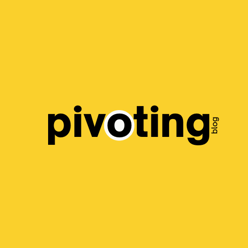Online Learning Platforms for Mid-Career Professionals: Elevate Your Skills and Advance Your Career
Mid-career professionals often seek opportunities to enhance their skills and adapt to an evolving job market. Online learning platforms offer a flexible and accessible solution for individuals looking to expand their expertise without the constraints of traditional education.


Online Learning Platforms for Mid-Career Professionals: Elevate Your Skills and Advance Your Career
Mid-career professionals often seek opportunities to enhance their skills and adapt to an evolving job market. Online learning platforms offer a flexible and accessible solution for individuals looking to expand their expertise without the constraints of traditional education. As careers progress, the need for continuous learning becomes paramount to remain competitive and relevant.
These platforms provide a wide range of courses tailored to various industries, allowing professionals to choose subjects that align with their career goals. With courses designed by industry experts, learners can gain insights that are directly applicable to their roles. The convenience of online learning means that busy professionals can integrate education into their hectic schedules.
Exploring the best online learning platforms can be the next step for those wanting to elevate their careers. It is crucial for professionals to identify which platforms offer the resources, community support, and credentials that fit their specific needs.
Evaluating Online Learning Platforms
Choosing an online learning platform involves several critical factors that cater to mid-career professionals. A thorough evaluation ensures that the selected platform aligns with personal goals and career advancement.
Accreditation and Recognition
Accreditation is essential when evaluating online learning platforms. It confirms that the institution meets specific educational standards. Look for programs accredited by recognized bodies, such as the Council for Higher Education Accreditation or regional accrediting organizations.
Recognition from industry leaders enhances a platform’s credibility. Consider platforms that partner with established companies or have endorsements from industry experts. Verified credentials often translate to increased employability and career advancement opportunities.
Research the institution’s reputation by checking reviews and alumni success stories. Engaging with alumni can provide insights into the platform's effectiveness and network strength.
Curriculum Relevance for Mid-Career Professionals
Curriculum relevance plays a pivotal role in a mid-career professional's choice of an online platform. Programs must focus on current industry trends, skills, and technologies that are in demand.
To ensure suitability, examine course descriptions, learning outcomes, and the expertise of instructors. Topics should be aligned with real-world applications that can be immediately implemented in the workplace.
Another consideration is the availability of specialized courses targeting specific sectors. Platforms that offer customizable learning paths can provide tailored education that meets the unique needs of professionals looking to pivot or deepen their expertise.
Flexible Learning Schedules
Flexibility is crucial for mid-career professionals balancing work, family, and education. Online learning platforms should offer varied schedules and self-paced learning options.
Look for platforms that allow learners to access materials anytime and anyplace. Evening and weekend classes can accommodate those with busy work schedules.
Additionally, consider the platform's technology. A user-friendly interface that supports mobile access enables more effective learning on-the-go. This flexibility can lead to a better educational experience without compromising professional responsibilities.
Interactive Learning Experience
An interactive learning environment can significantly enhance the educational experience. Evaluate platforms that utilize tools like video conferencing, discussion forums, and peer collaboration.
Interactive elements foster engagement and facilitate networking opportunities. These components can lead to meaningful connections with instructors and fellow learners.
Incorporating practical assignments, case studies, and real-world projects is also critical. This hands-on approach helps solidify concepts and promotes skill application. A dynamic, interactive curriculum is vital for a comprehensive learning experience that appeals to mid-career professionals.
Top Platforms for Professional Development
Mid-career professionals often seek online learning platforms that offer targeted skills for career advancement. The following platforms excel in providing valuable resources tailored to industry needs.
Coursera and Industry Partnerships
Coursera collaborates with leading universities and companies to deliver courses that are relevant to current job markets. Participants can earn accredited certificates from prestigious institutions like Stanford and Yale.
The platform offers specializations in various fields, including data science, business, and technology. These course offerings not only enhance knowledge but also improve employability. Many courses are designed in conjunction with industry leaders, allowing learners to gain insights that are directly applicable to their careers.
Key Features:
Accredited certificates from recognized institutions
Industry-designed courses
Opportunities for hands-on projects
Udacity and Nanodegrees
Udacity focuses on technology and business skills through its Nanodegree programs. These are short, intensive courses aimed at specific high-demand fields such as artificial intelligence, programming, and digital marketing.
Each Nanodegree includes real-world projects that allow learners to apply their knowledge. Additionally, Udacity offers mentorship, career services, and access to industry professionals. This comprehensive support system aids professionals in achieving personal and career goals.
Key Features:
Project-based learning
Mentorship and career support
Focus on high-demand skill sets
LinkedIn Learning for Networking Opportunities
LinkedIn Learning integrates professional development with networking capabilities. Users can access a vast library of courses covering various skills, from leadership to software proficiency.
The platform emphasizes learning's role in career progression, enabling users to showcase acquired skills on their profiles. Networking features allow users to connect with industry professionals and potential employers. This connection can lead to new opportunities and collaborations.
Key Features:
Extensive library of courses
Skill showcase on LinkedIn profiles
Networking with professionals
Skillshare for Creative Skills Enhancement
Skillshare caters to those seeking to improve creative skills through a wide variety of classes. Popular topics include graphic design, photography, and writing. Each class is taught by industry experts and emphasizes practical projects.
The community aspect of Skillshare enables learners to share their work and gain feedback. This interaction helps develop creativity and offers networking possibilities among peers.
Key Features:
Focus on creative skills
Project-based classes
Community engagement and feedback
Integrating Online Learning into Career Growth
Online learning offers mid-career professionals a flexible way to enhance their skills and advance their careers. By setting clear goals, managing time effectively, and applying new knowledge, individuals can achieve meaningful growth.
Setting Achievable Goals
To effectively integrate online learning, professionals should establish clear, achievable goals. These goals should be specific, measurable, attainable, relevant, and time-bound (SMART). For example, instead of stating, “I want to learn data analysis,” a more refined goal would be, “I will complete a data analysis course within three months and apply those skills to my current job.”
Writing goals down and regularly reviewing them can increase accountability. Professionals might consider breaking larger goals into smaller milestones, making it easier to track progress and stay motivated. Creating a timeline with deadlines for each milestone can also be beneficial.
Time Management Strategies
Effective time management is crucial for balancing online learning with professional responsibilities. Techniques such as time blocking can help allocate specific periods for learning. For instance, dedicating one hour each morning before work for coursework can create a consistent routine.
Utilizing productivity tools and apps can also assist in keeping track of assignments and deadlines. Setting reminders for these tasks ensures that learning does not fall by the wayside. Prioritizing tasks based on urgency and importance aids in maintaining focus on both career and educational goals.
Application of Acquired Skills
Applying skills gained from online learning to real-world situations can significantly enhance career growth. Professionals should seek opportunities within their current roles to implement newfound knowledge, fostering practical experience. This could involve volunteering for projects that require the skills learned.
Networking with colleagues and sharing insights can facilitate further application. Engaging in discussions about new techniques can lead to collaborative opportunities that benefit both the individual and the organization. Regularly reflecting on what has been learned and how it can be applied is essential for continuous improvement.
Cost Analysis of Online Learning Investments
When evaluating the cost of online learning platforms, mid-career professionals should consider various factors that contribute to the overall investment.
Tuition Fees
Most platforms charge tuition fees that can vary significantly. Here’s a general breakdown:
Type of CourseCost RangeShort Courses$50 - $500Certificate Programs$300 - $2000Degree Programs$5,000 - $30,000
Additional Expenses
Beyond tuition, there may be other costs such as:
Course Materials: These can add up to $100 or more.
Technology Fees: Some platforms might charge for access to proprietary software.
Networking Opportunities: Payments for events or membership in exclusive groups can also be significant.
Return on Investment (ROI)
Investing in online learning can yield a high ROI. Many professionals experience salary increases or promotions after completing courses. Research indicates that individuals can expect a salary boost of approximately 10% to 20% annually following further education.
Time Investment
It’s also vital to factor in the time commitment required. Many programs expect 5-10 hours of study per week.
In the long run, these investments can lead to enhanced skills and improved career prospects.
